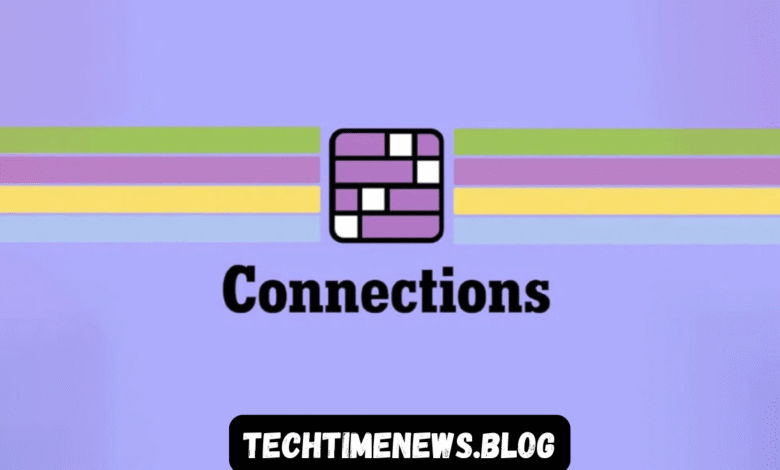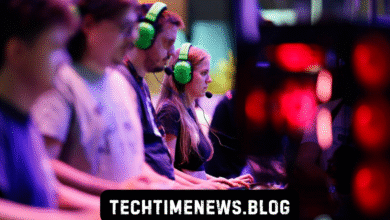Understanding the Concept Behind Connections Hint Forbes

The phrase “connections hint Forbes” suggests a fusion of two ideas: the popular puzzle game Connections and the reputation of Forbes as a source of strategic insight, analysis, and business intelligence. While Connections challenges players to group words by hidden relationships, the addition of “Forbes” hints at a layer of professional expertise, logical reasoning, and high-level problem-solving often associated with the business world. This combination points toward the use of intellectual skills not just for casual gaming but also for developing strategic thinking applicable to real-world decisions.
The game itself involves identifying common themes between words or concepts. When examined through a business lens, this exercise mirrors the analytical mindset required in finance, entrepreneurship, and leadership—core topics Forbes frequently highlights. Rather than treating it as just entertainment, viewing Connections through a Forbes-like perspective elevates it into a training ground for structured thinking.
The Rise of Connections as a Cognitive Challenge
Connections has become widely recognized for its ability to stimulate mental agility. Players are presented with sixteen words that must be divided into four groups of four, with each group linked by an underlying theme. This process requires critical thinking Connections Hint Forbes and elimination. Unlike simple trivia games, Connections rewards pattern recognition rather than memorized facts.
This rise in popularity coincides with a cultural shift toward brain-training activities and intellectual leisure. People no longer see puzzles as distractions; they see them as tools for sharpening analytical skills. These skills—pattern recognition, strategic elimination, and conceptual linking—align naturally with qualities celebrated in Forbes profiles of entrepreneurs, executives, and innovators. Just as a CEO spots emerging market trends, a Connections player identifies subtle relationships between seemingly unrelated items.
Strategic Thinking A Shared Core Between Business and Puzzles
What does a logic puzzle have to do with the strategic decisions made in boardrooms? More than one might assume. Solving a Connections puzzle is an exercise in:
- Distinguishing meaningful data from noise
- Prioritizing probable patterns
- Testing hypotheses under uncertainty
- Making incremental adjustments to avoid errors
This mirrors business strategy, where leaders sift through market signals, anticipate competitor behavior, and iteratively refine their plans. Just as an executive might use analytics to determine which product lines to expand, a Connections solver tests groupings, identifies which combinations fail, and refines their approach until they reach clarity.
How Forbes Level Analysis Elevates Puzzle Solving
To interpret “connections hint Forbes,” one must consider how Forbes frames information. Articles from Forbes are known for drawing links between global events, market shifts, and business opportunities. Applying this style of analysis to a puzzle means looking beyond the surface. For example, if a puzzle includes terms like “Apple,” “Amazon,” “Tesla,” and “Meta,” a casual solver might simply label them “companies.” A Forbes-style thinker, however, might classify them as “innovators in disruptive technology,” seeing the deeper strategic thread rather than the obvious label.
This perspective sharpens intellectual depth. Instead of rushing to complete a puzzle, the solver develops an instinct for layered interpretation—an approach that’s invaluable not just in gaming but in professional problem-solving.
Why Cognitive Exercises Are Gaining Professional Recognition
Professionals are increasingly turning to cognitive exercises to maintain sharpness, adaptability, and decision-making speed. Whether it’s executives solving logic grids or investors using abstract reasoning tests to improve focus, these activities have crossed from pastime to performance tool. A Connections puzzle isn’t just mental entertainment; it’s a miniature case study in categorization and insight.
The Forbes connection here highlights how intellectual training applies to careers where quick, accurate reasoning has real consequences. Business leaders profiled by Forbes often emphasize adaptability, and games like Connections embody that trait: you have to shift strategies mid-puzzle, rethink assumptions, and adjust quickly when an approach fails.
From Wordplay to Real-World Application
Thinking of a Connections puzzle as more than a word game creates interesting parallels to finance, entrepreneurship, and policy-making. Consider these scenarios:
- Market Analysis: Grouping industries by performance trends requires the same pattern recognition as grouping words by theme.
- Investment Decisions: Just as you test and discard faulty word groupings, an investor tests and discards flawed hypotheses about stock performance.
- Innovation Strategy: Spotting hidden links between technologies mirrors the creative insight required to design breakthrough products.
In this way, “connections hint Forbes” symbolizes a mental framework that extends beyond puzzle-solving. It is a metaphor for drawing meaningful insights from complex information—something Forbes frequently explores through its coverage of thought leaders and innovators.
Enhancing Analytical Precisin Through Practice
The mental discipline developed by solving Connections puzzles consistently translates into sharper analytical precision. Players learn to:
- Scan information rapidly while maintaining accuracy
- Recognize false leads and adjust without hesitation
- Develop a structured approach to categorization
- Build confidence in intuitive decision-making
This is the same mental toolkit praised in Forbes profiles of highly effective leaders. The act of sorting, refining, and confirming decisions on a small scale—within a puzzle—reflects the decision-making required on a larger scale in corporate or investment environments.
Why Forbes Readers Would Appreciate Connections
Readers of Forbes often value tools that improve judgment, insight, and adaptability. Connections aligns perfectly with these interests. While it may appear as a casual puzzle, the mindset it cultivates—analytical reasoning, flexibility, and intellectual curiosity—is foundational to success in competitive fields.
This connection explains why discussions of the game often attract professionals, entrepreneurs, and strategists. They recognize that the skills honed by these puzzles are not abstract. They are practical. The same habits that help solve word puzzles help people detect market shifts, recognize disruptive ideas, and evaluate partnerships.
The Psychology of Pattern Recognition
Pattern recognition is central to both solving Connections puzzles and succeeding in business. Humans naturally seek order in chaos, but high performers refine this ability through deliberate practice. A “connections hint Forbes” perspective underscores the importance of viewing data sets critically. Not every apparent pattern is meaningful. In puzzles, false associations must be eliminated; in markets, misleading signals must be scrutinized.
Cognitive psychologists note that this skill—discerning real patterns from coincidental ones—is a predictor of strong decision-making. It’s why venture capitalists look for emerging themes in startups, why analysts track consumer behavior clusters, and why leaders constantly test assumptions. The puzzle becomes a mental rehearsal for this higher-level skill.
Intellectual Enjoyment Meets Professional Development
When entertainment overlaps with professional development, engagement deepens. People are more likely to practice skills when they enjoy the activity. Viewing Connections as “mental training” rather than just a pastime transforms each puzzle into an exercise in strategic reasoning.
The Forbes element adds prestige to this viewpoint, framing it as more than casual fun. It becomes a credible method for intellectual improvement, particularly for readers interested in staying mentally agile in high-pressure fields.
Cultivating a Problem-Solver’s Mindset
One of the strongest lessons from “connections hint Forbes” is the cultivation of a problem-solver’s mindset. In any context—whether corporate negotiations or puzzle solving—success comes from:
- Approaching problems systematically
- Staying open to alternative interpretations
- Learning quickly from mistakes
- Maintaining persistence without rigidity
Connections puzzles train these exact qualities. The challenge is to reach an answer while constantly questioning whether your assumptions hold true. This mindset, celebrated in countless Forbes profiles of innovators and leaders, is a hallmark of effective decision-making.
Intellectual Discipline and the Value of Hints
The idea of a “hint” itself is interesting. In Connections, a hint nudges players toward the correct solution without giving it away. In business and strategy, hints take the form of market signals, small data points, or emerging trends. Interpreting them correctly is key. A Forbes-style thinker does not ignore hints, nor do they take them at face value; instead, they analyze them in context.
This reinforces another important lesson: success often comes not from raw knowledge but from the ability to evaluate subtle information cues. Whether it’s a slight change in consumer behavior or a word in a puzzle that doesn’t quite fit, recognizing and acting on hints requires intellectual discipline.
The Broader Implications of Mental Training
Games like Connections represent a broader movement in which mental training tools are being adopted by professionals across industries. They serve as low-stakes environments to practice high-value skills: critical thinking, adaptability, and analytical clarity.
When combined with Forbes’ ethos of intelligent insight, the idea becomes even more compelling. “Connections hint Forbes” reflects a philosophy: train your brain to link concepts wisely, and you’ll be better prepared for the complex challenges of business, investment, and leadership.
Building a Habit of Structured Reasoning
Repeated exposure to logic challenges creates habits that spill into everyday decision-making. Those who consistently engage with cognitive puzzles become more methodical in how they approach real-world problems. They start to:
- Recognize categories more quickly
- Spot errors before they escalate
- Make decisions with greater confidence
- Organize information into clearer mental frameworks
These are traits often celebrated by Forbes when analyzing what sets successful people apart from their peers. A structured reasoning process is not innate; it’s cultivated, and puzzle-solving is a surprisingly effective tool to do so.
How This Mental Model Prepares for Uncertainty
Both business strategy and puzzle-solving involve uncertainty. You rarely have complete information at the start. In a Connections puzzle, the correct groupings are hidden, and you must test options without knowing if you’re right. In the business world, leaders face markets that shift unexpectedly. Developing comfort with uncertainty—and learning to reduce it systematically—is a shared skill.
A Forbes-inspired approach to Connections highlights this reality: thriving under uncertainty requires confidence, flexibility, and logical refinement. Those who master it in small-scale puzzles often carry that composure into larger professional challenges.
The Lasting Value of Blending Play with Insight
“Connections hint Forbes” captures a mindset that treats intellectual play as professional preparation. The puzzle is not just a distraction; it’s a rehearsal for analytical performance in fields where decisions have consequences. By treating hints as opportunities to think deeper rather than shortcuts, solvers build patience and discernment.
In essence, this phrase symbolizes more than just a game or a Connections Hint Forbes business publication. It represents a philosophy of lifelong learning—where every challenge, no matter how small, is an opportunity to sharpen the mind.
Conclusion More Than a Puzzle More Than a Hint
The union of “connections” with a “Forbes” perspective embodies the principle that intellectual exercises have real-world value. Connections puzzles teach structured reasoning, adaptability, and insight recognition—skills equally valuable to puzzle enthusiasts and business leaders. Viewing them through a Forbes-like lens transforms a simple game into a strategic training ground, preparing solvers to face challenges in business, leadership, and everyday decision-making with clarity and confidence.



